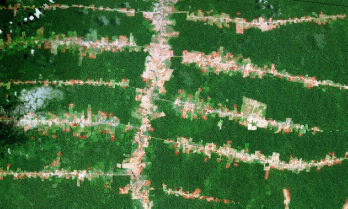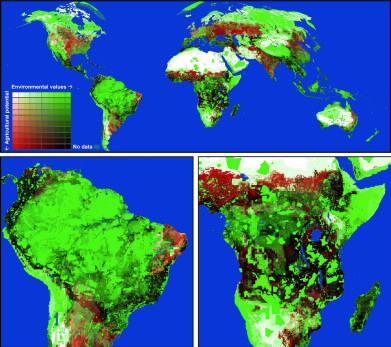Media Releases
Study shows where on Earth roads should and should not go
More than 25 million kilometres of new roads will be built worldwide by 2050. Many of these roads will slice into Earth’s last wildernesses, where they bring an influx of destructive loggers, hunters and illegal miners.
Now an ambitious study has created a ‘global roadmap’ for prioritising road building across the planet, to try to balance the competing demands of development and environmental protection.

“Roads often open a Pandora’s Box of environmental problems,” said Professor William Laurance of James Cook University in Australia, the study’s lead author. “But we also need roads for our societies and economies, so the challenge is to decide where to put new roads - and where to avoid them.”
The study has just been published in the prestigious journal Nature. Professor Laurance and colleagues from Harvard, Cambridge, Melbourne, Minnesota and other universities worked for nearly two years to map the world’s most important ecosystems and biodiversity.
“It was a challenge, but we think we’ve identified the most environmentally vital real estate on the planet,” said Professor Andrew Balmford of the University of Cambridge, UK.
After mapping the priority areas for conservation, the team then tried to decide where roads would have the greatest benefits for humanity.
“We focused on agriculture because global food demand is expected to double by mid-century, and new or improved roads are vital for farmers,” said Dr Nathan Mueller from Harvard University, USA. “With better roads, farmers can have improved access to fertilizers, information, and markets for their crops—the whole economic equation changes, which can make farming more efficient and profitable.”
“The good news is that there are still expanses of the world where agriculture can be greatly improved without large environmental costs,” said Dr Gopalasamy Reuben Clements from James Cook University.
“However, our study also shows that in large parts of the world, such as the Amazon, Southeast Asia, and Madagascar, the environmental costs of road expansion are massive,” said Christine O’Connell from the University of Minnesota, USA.

The authors emphasise that there will be serious conflicts in the coming decades.
“We’re facing a lot of tough decisions,” said Irene Burgues Arrea of the Conservation Strategy Fund in Costa Rica. “For instance, there are huge conflict areas in sub-Saharan Africa, because it has vital wildlife habitats but a very rapidly growing human population that will need more food and more roads.”
“We hope our scheme will be adopted by governments and international funding agencies, to help balance development and nature conservation,” said Professor Laurance.
“So much road expansion today is unplanned or chaotic, and we direly need a more proactive approach. It’s vital because we’re facing the most explosive era of road expansion in human history,” Professor Laurance said.
For further information contact:
Distinguished Professor William Laurance
James Cook University, Cairns, Queensland, Australia
Email (monitored continuously) bill.laurance@jcu.edu.au
Phone: +61-7-4038-1518 (07-4038-1518 inside Australia)
Richard Davis, Head of Media and Communications, JCU
(07) 4781 4822 / 0413 451 475 richard.davis@jcu.edu.au
Article details:
Laurance, W.F., Clements, G.R., Sloan, S., O’Connell, C.S., Mueller, N.D., Goosem, M., Venter, O., Edwards, D.P., Phalan, B., Balmford, A., Van Der Ree, R., and Burgues Arrea, I. (2014) A global strategy for road building. Nature, http://dx.doi:10.1038/nature13717